Eco grants typically cover a range of initiatives backed by governments or organisations to encourage the adoption of sustainable energy practices by homeowners or businesses. The ECO4 scheme, for example, is an initiative by the UK government designed to promote environmental sustainability by creating more energy-efficient homes in the UK.
The term Energy Efficiency simply means the use of less amounts of energy to achieve the same outcome. The aim is to reduce pollution, and increase energy security, while also helping low-income households with gas and electric bills.
As a crucial part of Britain’s Energy Security Strategy, the Department for Business, Energy & Industrial Strategy is committed to improving energy efficiency, by reducing the amount of energy that households and businesses need. The aim is to make UK homes more comfortable and cheaper to run. This will save gas, grow the UK's energy security, and bring more jobs to the UK.
According to the Department, they have already saved households on the lowest income around £300 a year on bills through energy efficiency measures. Currently, over £6 billion is being invested into decarbonising UK’s homes and buildings.
With over 90% of UK homes heated by fossil fuels which accounts for about 33% of UK total gas use, energy efficiency is important and can reduce heating bills by around 20% reducing the UK’s dependence on foreign gas.
The Energy Company Obligation (ECO) scheme is an initiative backed by the UK government with the objective of improving the energy efficiency of UK homes. This initiative was introduced in 2013 and mandates energy suppliers to install cost-effective energy-saving solutions in some of the UK’s most income-restricted households.
There are several measures taken to reduce energy consumption which include insulation, heat pumps, boiler replacements, or solar panels.
According to the government, over 3.6 million energy-efficient measures have been installed in more than 2.4 million homes across the UK since its launch in 2013. The most common benefit however is wall insulation. Data published by the government shows the ECO scheme has saved nearly £20bn from lifetime bill savings.
In addition to energy saving, ECO also offers hardship grants for single mothers, fathers, people with disabilities, and other financially vulnerable households.
As of 2023, there have been five ECO schemes, however, only ECO4 which was introduced in April 2022 is currently in operation. It replaces the ECO3 scheme.
ECO4 is the fourth phase of the ongoing government-initiated Energy Company Obligation policy to support financially-restricted households and to create more energy-efficient homes in order to attain carbon-neutral goals for the UK.
The ECO4 scheme is part of the government’s resolve to make all UK homes more energy-efficient by 2035.
The ECO4 scheme which replaced the ECO3 started in August 2022 and will continue until 31 March 2026. The scheme is worth £4 billion and delivers energy efficiency and heating measures to homes in England, Scotland, Wales and Northern Ireland.
The ECO4 grant scheme applications are open for August 2023. These grants are provided at no cost to eligible households.
This is to ensure that energy efficiency upgrades for deserving UK homes are fully funded by the energy provider. Upgrades include heating improvements and insulation measures to minimise heat loss from homes thereby reducing the energy needed to keep it warm which will consequently lower carbon emissions.
However, you must note that only homes with an Energy Performance Certificate (EPC) of D or lower can benefit from ECO4. The ECO4 scheme thus gives greater attention to low-income households and areas of high fuel poverty.
There are a number of solutions aimed at minimising energy consumption that are available with the ECO4 scheme. These include;
Green heating systems installation is available in the ECO4 scheme.
This includes air source heat pumps and biomass boilers. They are installed to replace ineffective boilers, thus reducing energy bills for households by 25%.
Additionally, solar panels can also be installed for the households through the ECO4 but this is only if a heat pump or biomass boiler are not feasible.
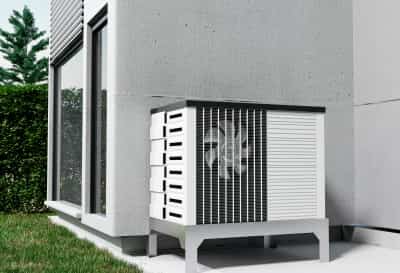
This is the most common benefit available through the ECO4 scheme. By installing insulation, homes can save as much as £1 ,800 a year.
Cavity wall insulation, solid wall, room in a roof and loft insulation are examples of available insulation measures available through the scheme. However, this will be accessed on a household-by-household basis.
Cavity Wall Insulation
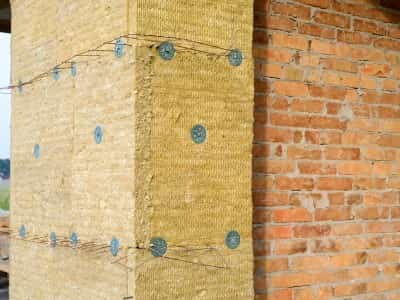
Solid Wall Insulation

Room in Roof Insulation
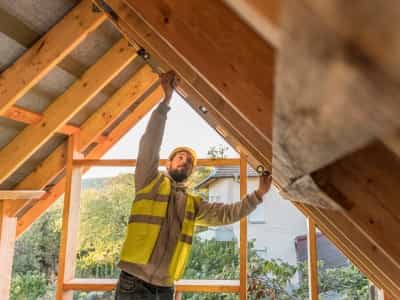
Loft Insulation
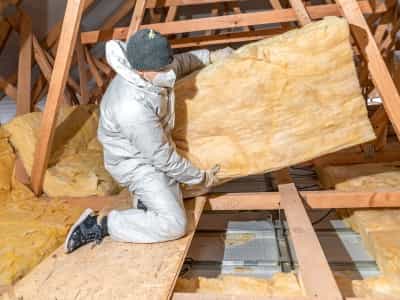
The focus of the ECO4 scheme is primarily to make properties more energy efficient before taking other steps such as upgrades to the heating system.
There are boilers which cannot be replaced with a heat pump and for this reason, the ECO4 scheme makes provision to upgrade and repair boilers so that they are more effective.
The scheme makes provision for diagnostics, cleaning, and repair of boilers so that they are restored to function optimally, giving households the benefit of using their boilers to their fullest potential which is typically 12 years.
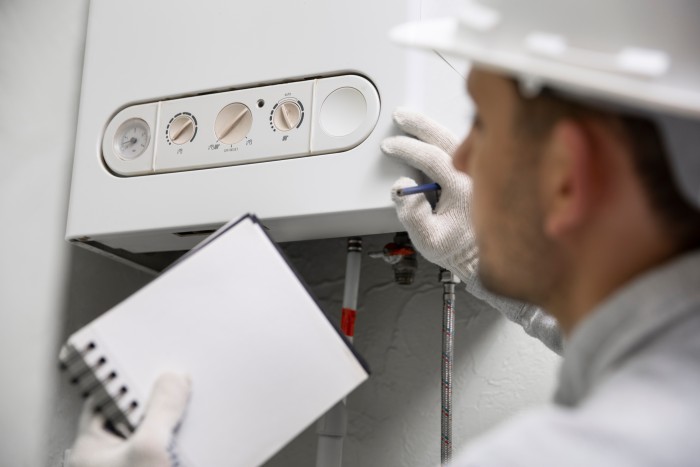
Some of the changes made for the ECO4 phase include;
Changes have been made to qualifying benefits including removing a number of disability benefits.
Alterations to the number of measures to be installed under Local Authority Flexible Energy. This could be as high as 50% of measures installed under council rules; an increase from the previous cap of 25%.
Additional Energy Performance Certificate (EPC) improvement requirements
Removal of almost all boilers from the ECO4 scheme. The only exception is non-condensing boilers which can be upgraded under the new regulations.
Although there are many similarities between the ECO3 and ECO4, the latter stage aims to reach more vulnerable households and areas with high fuel poverty.
ECO4 targets vulnerable households receiving benefits or those in the low-income bracket, ensuring that all homes have access to affordable energy.
One major difference between the ECO4 and ECO3 Schemes is that some benefits that were previously eligible through ECO3 cannot apply through the ECO4 Scheme. The ECO4 report states that this is “to help better target households which are more likely to be on low incomes”.
Almost 134,000 boilers were upgraded under the ECO3 Scheme, but this is being limited to just 5,000 under the ECO4 Scheme.
More funding is available in the ECO4 scheme. Taking inflation into account, £640 million will be made available to target support to vulnerable households.
Households who receive means-tested benefits will be eligible in the ECO4 scheme. As much as 50% of the obligation target can be Up to 50% of the obligation target can be met under the reformed ECO4 Flex, which is designed to target low-income households not in receipt of benefits. There will be at least 3.5 million homes eligible with ECO4 flex voluntary for obligated suppliers, local authorities, and the Scottish and Welsh governments.
The ECO4 will support the least efficient homes in energy efficiency bands E-G only for social housing and private rented accommodation. For homes in other categories, the scheme will support band D-G homes.
Over the 4-years scheme, a solid wall minimum target of 90,000 solid wall measures has been set.
The EFG minimum target has been increased to 150,000 private tenure homes.
2 uplifts for innovation, so that progress can be appreciated and differentiated between relative and substantial improvements against standard options which are in the market. Demonstration actions will not be added.
Off-gas rural areas in Scotland and Wales will see score uplifts of 35% so as to incentivise delivery in harder-to-reach.
Eligibility check will also be done faster. In the ECO3, it took four weeks to be assessed but it is planned that the ECO4 eligibility check can be completed within a week.
At this point, you may be asking, “Do I qualify for the eco scheme?” Let us now look at the ECO4 scheme eligibility.
In addition to being a current EDF customer, listed below are the eligibility criteria for ECO4.
A DWP check will be completed before installation. You will be asked to provide your Child Benefit Award Notice if you receive Child Benefits only. You will also provide a signed self-declaration and evidence to support your eligibility.
To be eligible you must have
An EPC rating of E or below
Additionally, you should be a recipient of one of the following;
Income-based Job Seekers Allowance
Income-related Employment and Support Allowance
Income Support
Pension Credit Guarantee Credit
Working Tax Credit
Child Tax Credit
Universal Credit
Housing Benefit
Pension Credit Savings Credit
Child Benefit
The following benefits are not included as part of the eligibility criteria for the ECO4 scheme
Disability Living Allowance (DLA)
Personal Independence Payment (PIP)
Attendance Allowance
Carer's Allowance
Severe Disability Allowance
Industrials Injuries Disablement Benefit
War Pensions Mobility Supplement
Constant Attendance Allowance
Armed Forces Independence Payment
The table below shows the Child Benefit eligibility for the total maximum household income (and not per child).
| TYPE OF CLAIMANT | NUMBER OF CHILDREN OR QUALIFYING YOUNG PERSONS | |||
|---|---|---|---|---|
| 1 | 2 | 3 | 4 or more | |
| Single claimant | £19,000 | £24,800 | £29,600 | £34,500 |
| Member of a couple | £27,500 | £32,300 | £37,200 | £42,000 |
Here are the steps to take for a more energy-efficient home with the new ECO4 scheme;
Ensure you satisfy the eligibility criteria
You will be matched with an installer depending on your location
The installer carries out a free survey
The survey helps the installer know what package of measures is required
After installation, you can now enjoy your more energy-efficient home.
Applying for the ECO4 scheme is not difficult. As long as you live in the UK and you meet the eligibility criteria, you can make your application by reaching out to energy suppliers and finding out what measures they offer.
Be aware that you cannot apply for ECO funding by yourself. This must be done through an energy supplier.
Another option you have is to contact a member of the ECO-Grants team today and they can help you upgrade your property for free.
Eligibility for the Ofgem ECO4 is assessed using three different categories
1. Eligibility Under Help to Heat Group
If you are living at private domestic premises and are a member of the Help to Heat Group (HTHG), you will be eligible for the ECO4. To be a member of the HTHG, means you satisfy the relevant income requirement and entails receipt of at least one of the following benefits;
Income-based Jobseekers Allowance (JSA)
Income-related Employment and Support Allowance (ESA)
Income Support (IS)
Pension Credit Guarantee Credit (PCGC)
Working Tax Credit (WTC)
Child Tax Credit (CTC)
Universal Credit (UC)
Housing Benefit
Pension Credit Savings Credit (PCSC)
Child Benefit (within the income caps)
Also, you can be an eligible member of the HTHG if you live at a private domestic premise and are in receipt of the Core Group 1 and Core Group 2 rebates in England and Wales, or the Core Group in Scotland under the Warm Home Discount scheme.
Households with disabilities would also be eligible only if they are in receipt of a means-tested benefit or meet one of the eligibility criteria under the four routes outlined in the eligibility mechanism ‘ECO4 Flex’.
2. Social Housing Tenants with Poor Energy Efficiency
Here social housing homes with an EPC energy efficiency rating of D, E, F, and G are eligible.
E-G-rated social housing homes are however limited to the following packages;
Insulation measures
First-time central heating
Renewable heating except where it replaces a renewable heating measure of the same kind at the domestic premises
District heating connection
Innovation measures (IMs).
For social housing rated band D, measures are limited to IMs and insulation measures installed to meet the Minimum Insulation Requirements only.
3. Eligibility under ECO4 Flex
Under ECO4 Flex, there are four distinct routes outlined to identify qualifying households. The local authorities (LAs), the Scottish and Welsh Governments, and suppliers can identify households that meet these criteria.
You are free to contact your LA directly if you wish to get more information or to find out if you meet the eligible criteria.
Also, note that eligibility is not a guarantee for installation. The energy companies determine which retrofit projects they want to fund, the level of funding, the Retrofit Coordinator, and installers they choose to work with. Therefore, you need to speak with your energy supplier if you have any questions.
Rest assured, we’re here to help. At Eco Grants company, we're committed to assisting homeowners and businesses in gaining access to sustainable, efficient energy at no cost. Our team is always available to answer your questions and guide you through a variety of available free energy efficiency options and government grants that you may qualify for.
Get in touch with us today via our line at 0808 8175 4911.
This is solely up to the energy companies. They determine which retrofit projects they choose to fund, the level of funding they provide, and the retrofit coordinator or installers they choose to work with. The level of funding usually depends on the type of measures and other factors. You may be required to contribute to the installation cost. If you are asked to do this, you may need to make enquiries and go for the best deal available.
Be aware that ECO4 is not a grant scheme and so the level of support towards the installation of energy efficiency or heating measures depends on the energy companies or installers.
Yes, you can only if you are eligible. You may also be asked to contribute to your new solar system installation. It may also be installed for you completely free of charge. These all depend on a number of factors which you can talk about with your energy suppliers.
The energy suppliers are each given an individual ECO target which they must meet. Failure to do this and they may be handed a substantial fine. The targets they are given is based on their share of the domestic gas and electricity market.
Energy companies and suppliers recover their costs of delivering the scheme through customers' energy bills.